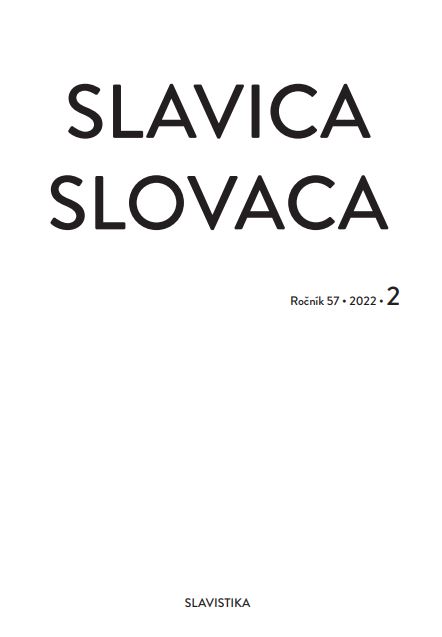Українська лексема халепа у світлі балканослов’янської етнолінгвістики (зі сфери етимологічних дискусій)
The Ukrainian lexeme halepa (халепа) in the light of Balkan Slavic ethnolinguistics (from the field of etymological discussions)
Author(s): Liudmyla Ivanovna DanylenkoSubject(s): Lexis, Semantics, Comparative Linguistics, Eastern Slavic Languages, South Slavic Languages
Published by: SAV - Slovenská akadémia vied - Slovenský komitét slavistov a Slavistický ústav Jána Stanislava SAV, v.v.i.
Keywords: Cultural and mythological semantics; semantic and motivational reconstruction; semantic parallel; Ukrainian language; Bulgarian language; South Slavic languages;
Summary/Abstract: In the modern Ukrainian language, the word halepa (хáлéпа) belongs to the active vocabulary, however, its archaic background is felt quite clearly, and the etymology remains obscured. The most widespread is the version about the origin of the word halepa from the Greek language χᾰλεπός. The purpose of this article is to try to offer an alternative etymology based on the background of the Balkan Slavic linguistic and ethnocultural areas. The starting point is the obsolete meaning of the word halepa ‘bad weather’ in the projection onto its South Slavic demonological character (h)ala. The search for the etymology of the word halepa in Ukrainian language in terms of its hypothetical connection with the Bulgarian lexeme khala (хала) reflected the complexity of the Balkan situation with its characteristic mutual influences, interweaving and layers of languages and cultures. This is confirmed by several versions of the origin of the word (h) ala in this linguocultural area. When analyzing the lexicon of a mythological nature, it seems productive to turn to the texts of the spiritual culture of the Slavs, which contribute to the verification of etymological hypotheses. Almost identical features are found between the South Slavic and Ukrainian demonological characters, which are characterized by meteorological signs. The mythological, semantic and formal closeness of the Bulgarian word hala and the Ukrainian word halepa allows us to determine the following line of interconnection: hala – storm – whirlwind – hail – bad weather – misfortune – trouble – halepa. The analysis leads to the conclusion that in the Ukrainian language initially the word halepa meant bad weather, force of nature, then acquired the taboo meaning ‘devil’, which reflected the causal relationship of these concepts, and finally received the modern meaning ‘problem, trouble’.
Journal: Slavica Slovaca
- Issue Year: 57/2022
- Issue No: 02
- Page Range: 103-117
- Page Count: 15
- Language: Ukrainian

